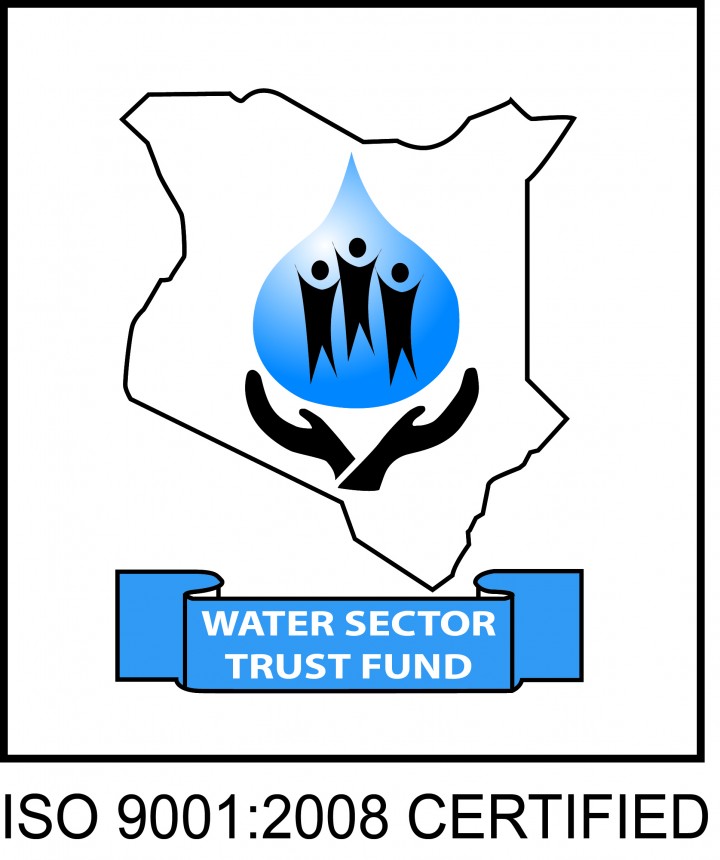Up-scaling Basic Sanitation for the Urban Poor (UBSUP) in Kenya To improve the living conditions of the urban poor by offering access to sustainable plot level sanitation and safely managed sludge treatment options for up to 400,000 residents of urban low income areas in Kenya.
Water Sector Trust Fund
WSTF
The UBSUP programme is implemented by the Water Sector Trust Fund (WSTF), which is a Kenyan state corporation mandated to finance water and sanitation services for the poor and under-served communities. UBSUP covers the entire sanitation service chain from toilet to treatment and is carried out on the grounds through the licensed water service providers (water utilities). The UBSUP approach is based on 3 key pillars: technology, social marketing, and business & financing. It comprises the following steps:
1. Creating demand: the WSTF launches a call for proposals and the water utilities apply for funding. A comprehensive social marketing / branding concept helps the water utilities create demand in their area for household toilets.
2. Promoting toilet construction: households choose from different standardised toilet options. The toilet owner receive a financial incentive covering part of the investment cost, after the toilet has been built according to standards.
3. Partnering with private sector: private vacuum tankers are registered with the water utilities to provide the collection and transport services. Business opportunities arise from the newly constructed toilets.
4. Setting up a decentralised treatment system: in case the town is not equipped with a treatment facility, UBSUP supports the construction of a Decentralised Treatment Facility (DTF) , which provides physical and biological treatment (no electricity or chemical additive) and can receive up to 22m3 of faecal sludge daily.
5. Monitoring and evaluation: tailor-made information systems and processes allow the WSTF and other stakeholders to prioritise, implement and monitor their interventions in order to improve access to sanitation.

Mission
1. Provide sustainable sanitation for over 400,000 people in the urban low income-areas in Kenya 2. Track access to sanitation for urban low income area dwellers through a monitoring system and make that information accessible to the public (i.e. an online database). 3. Enable sector institutions, civil society organisations and small-scale private entrepreneurs to actively participate in the provision of basic sanitation to the urban low income areas and cooperate with research institutes to improve sanitation options. 4. Ensure sustainable use of facilities and further development of the sub-sector through a sanitation up-scaling concept in line with the sector reforms.Approach
The WSTF is being supported by GIZ.Video(s)
Video about UBSUP project on Nov 22, 2017
Documents on website of Water Services Trust Fund
Answer questions about the project
Charles Kanyugo
Charles.Kanyugo@waterfund.go.ke
Ruth Nganga
ruth.nganga@waterfund.go.ke
Stella Warue
stella.warue@waterfund.go.ke
Filter / Tags
Capacity developmentMarket developmentTechnology comparisonsCitiesPublic awareness, advocacy and civil society engagement Operation, maintenance and sustainable servicesPolitical processes and institutional aspectsSpecific to one or several countriesToilets or urinals (user interface)Emptying and transport (non sewered)Treatment of wastewater or greywaterTreatment of faecal sludgeResource recovery Enabling environment and institutional strengtheningComposting, vermicomposting (solid waste), composting toiletsConstructed wetlandsDecentralised wastewater treatment (e.g. DEWATS)Faecal sludge treatment processesUrine diversion dehydration toilets (UDDTs) Multi-lateral and International Monetary FundBill & Melinda Gates FoundationFaeces or faecal sludgeUrinePeri-urbanUrban informal settlements (slums)PractitionersFertiliserGovernment-owned entity (not university or research)
Related Countries
Kenya
Downloads

Project location
